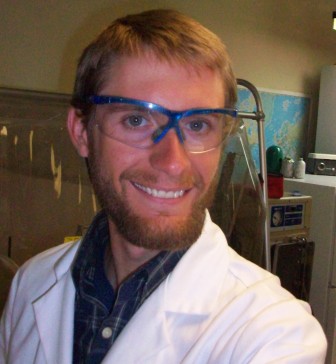
Greg was recently was awarded the "Outstanding Dissertation Award" for his 2012 thesis at the University of Minnesota by the Association of Environmental Engineering and Science Professors (http://www.ce.umn.edu/news/). This was work that ARCS Foundation Minnesota helped directly to support. This was a great honor for Greg as a national recognition in this field at the highest level, and for the U of M; the Best Master's Thesis award also went to a UMN grad!
Greg is currently working as a postdoctoral research scholar in the National Science Foundation engineering research center for Re-inventing the Nation's Urban Water Infrastructure (ReNUWIt; renuwit.org). ReNUWIt's focus is on creating comprehensive ways to better use and sustainably manage water in urban arid regions at lower energy. Greg's "research home" is in the environmental science & engineering program at Stanford University under the direction of Prof. Richard Luthy. He works in two main project areas. One is examining the use of systems to capture, treat, and recharge stormwater into aquifers that can be later used. Stormwater presents a great urban water resource for arid regions that carries significantly lowered embodied energy and is currently underused. Nevertheless, we need to ensure that pollutants from the urban environment do not make their way into drinking water aquifers; thus, his research in this area focuses on passive, low energy methods to removal contaminants. His second area of research is examining the use of plants to take up and degrade trace organic contaminants that may be found in recycled water or stormwater. Although the settings and goals of these projects are much different than his graduate work, his dissertation at Minnesota on bioretention systems to improve stormwater quality was very much related in nature and provided a solid foundation for this continued work.
